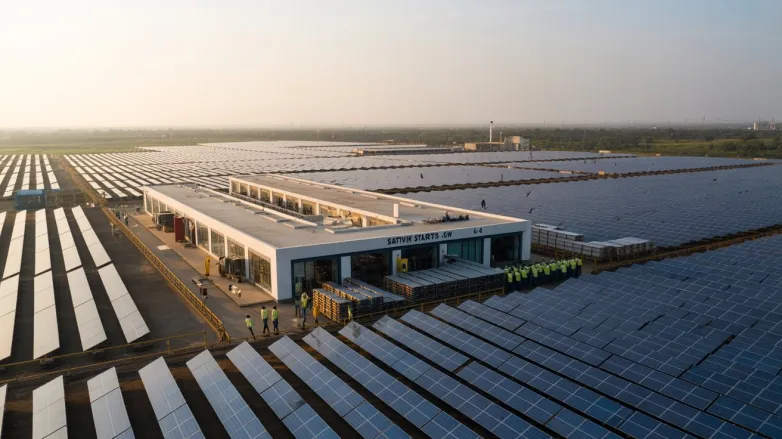Saatvik Starts 4.8-GW Solar Cell Factory at Odisha Gopalpur Park
- Saatvik Solar has begun building a ₹3,000 crore plant in Odisha to make 4.8 GW of cells and 4 GW of modules, boosting India’s home-grown PV capacity.

Saatvik Solar Industries has broken ground on a sprawling 57-acre site inside Tata Steel’s Special Economic Zone at Gopalpur Industrial Park, Odisha, setting the stage for one of the state’s largest clean-tech investments. The integrated plant will turn out 4.8 GW of solar cells and 4 GW of modules each year, sharply boosting India’s domestic manufacturing base.
Under the construction schedule unveiled at the ceremony, module lines are slated to come online by the end of fiscal 2026, with cell production following a year later. Once operational, the facility will more than double Saatvik’s current 3.8 GW output and move the Gurugram-based company into the country’s 10-GW-plus manufacturing league.
State officials said the factory forms part of a ₹28,084-crore cluster of green-industry projects launched last week, of which Saatvik alone will invest about ₹3,000 crore. The wider package is expected to create more than 15,000 jobs across Ganjam district, underlining Odisha’s ambition to become an eastern hub for renewable-energy equipment.
The Odisha complex complements Saatvik’s ongoing 1-GW expansion at its Ambala plant in Haryana, due in early fiscal 2026, and aligns with New Delhi’s Production-Linked Incentive and ALMM policies that reward home-grown solar capacity. By fiscal 2027, the company forecasts a combined 8.8 GW of module and 4.8 GW of cell capacity across its two sites—enough to meet a significant slice of India’s annual demand and offer export headroom as global buyers seek non-Chinese supply chains.
“Our strategy is simple: scale quickly and add value so that we stay at the forefront of solar manufacturing,” chief executive Prashant Mathur told guests, adding that the new lines will roll out high-efficiency n-TOPCon modules alongside mainstream mono-PERC products.
By anchoring itself in a port-adjacent SEZ with reliable power, Saatvik gains logistical advantages for both domestic deliveries and overseas shipping. For India, the project helps close the gap between its 500-GW 2030 renewable target and the local supply chains needed to build it—turning empty coastal land into a launchpad for gigawatt-scale solar manufacture.
Also read

